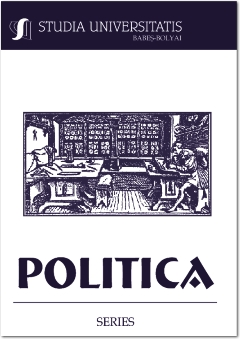THE EFFECTS OF THE ELECTORAL SYSTEM CHANGE ON THE POLITICAL REPRESENTATION IN ROMANIA
THE EFFECTS OF THE ELECTORAL SYSTEM CHANGE ON THE POLITICAL REPRESENTATION IN ROMANIA
Author(s): Andrada Erika BărăganSubject(s): Politics / Political Sciences
Published by: Studia Universitatis Babes-Bolyai
Keywords: electoral reforms; political representation; proportional electoral system; mixed electoral system.
Summary/Abstract: The present research is a part of the wider study of electoral systems and aims to follow the consequences of electoral reform in 2008 on the quality of political representation in Romania. The implications of the Romanian electoral system change and the transition from a proportional electoral system to a mixed system (single-member district and proportional distribution of seats) are analyzed by developing an original research design and by introducing indicators like standards for quality assessment of what a “good representative” means. The comparative study deals with representatives as individual entities and focuses on two particularly periods of time: the first as part of the 2004-2008 legislature, and the second as part of the 2008-2012 legislature. Moreover, it takes into consideration socio-demographic characteristics such as gender and age as well as frequency of specific activities carried out in Parliament by representative, speaking in plenary, legislative proposals initiated and signed motions. By analyzing the acquired data from the official website of the Parliament and by applying analysis techniques specific for quantitative variables (tables of association, regression analysis), it concludes that the electoral system change has improved, on some levels, the quality of political representation in Romania.
Journal: Studia Universitatis Babes Bolyai - Politica
- Issue Year: 2011
- Issue No: 1
- Page Range: 143-168
- Page Count: 26
- Language: English

